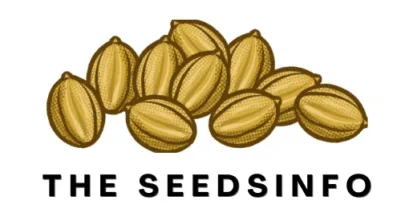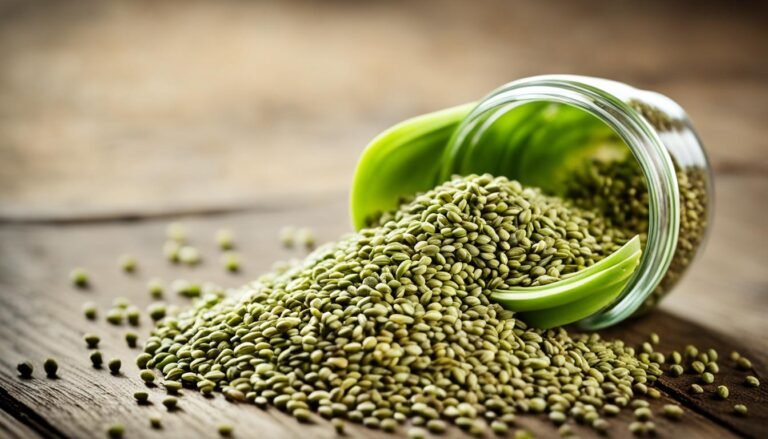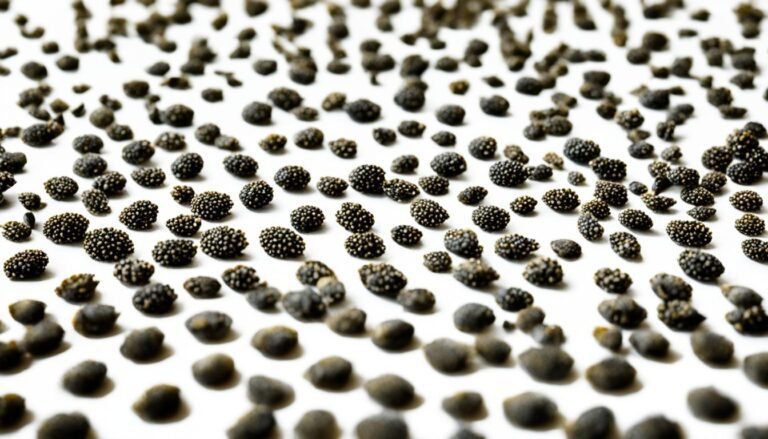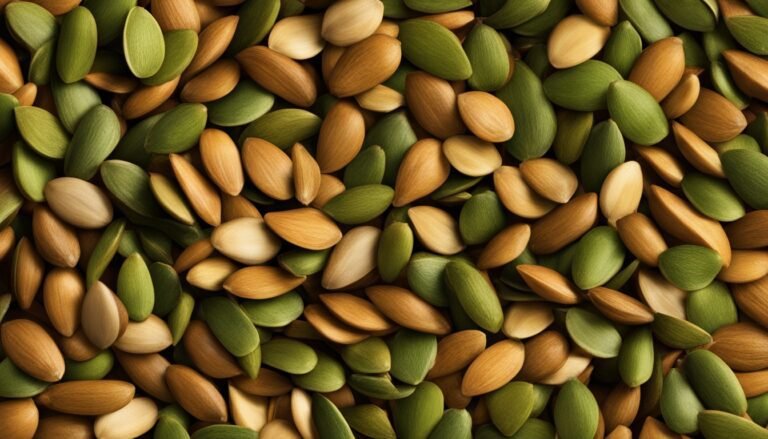Celery Seeds For High Blood Pressure:
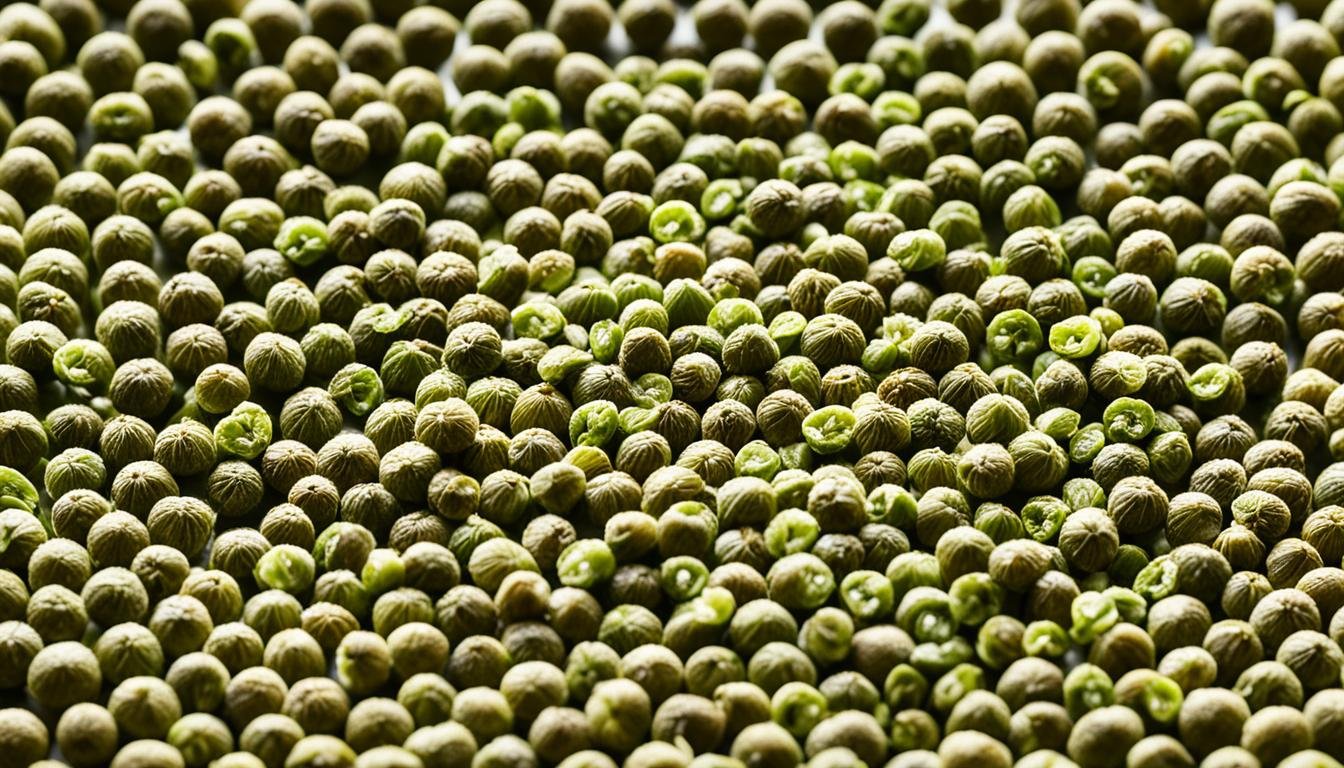
Science and medicine often uncover new “superfoods” that boost our health. Celery seeds are now in the spotlight for their role in lowering high blood pressure (HBP). Studies show that celery seed extract can help patients with mild to moderate high blood pressure.
Celery is packed with a special compound called phthalides. These help relax artery walls, making blood flow better and lowering blood pressure. Eating the whole celery plant, seeds and all, is best. It gives you fiber, magnesium, and potassium to keep blood pressure in check.
Introduction to Celery Seeds: Nature’s Gift
Celery seeds have been a natural remedy for thousands of years. They are packed with health benefits that have impressed both ancient healers and today’s wellness fans. These small seeds are a powerful addition to health routines.
Ancient Medicinal Uses of Celery Seeds
In ancient India, celery seeds were a key part of Ayurvedic medicine. They helped with water retention, digestion, joint pain, and inflammation. Their oils and compounds made them a top choice for health and wellness.
Celery Seeds in Modern Nutrition and Wellness
Now, celery seeds are back in the spotlight as a superfood. They’re full of vitamins, minerals, and antioxidants. These nutrients support health and wellbeing. They help with digestion, reduce inflammation, and may even lower blood pressure.
| Nutrient | Amount per 1 tablespoon (6 grams) |
|---|---|
| Calories | 20 |
| Carbohydrates | 3 grams |
| Fiber | 1 gram |
| Protein | 1 gram |
| Calcium | 37 mg |
| Iron | 1 mg |
| Magnesium | 9 mg |
| Phosphorus | 27 mg |
| Potassium | 62 mg |
| Zinc | 0.3 mg |

Understanding High Blood Pressure
High blood pressure, or hypertension, is a common health issue that affects many people. It’s the force your heart uses to pump blood through your body. If your pressure is too high, your heart works harder than it should.
Any blood pressure above 130/80 mmHg is seen as high blood pressure.
What is High Blood Pressure?
Hypertension, or high blood pressure, happens when your blood’s pressure against your blood vessel walls is too strong. This can harm your blood vessels, heart, kidneys, eyes, and brain over time if not managed.
Risks and Complications of Uncontrolled Hypertension
Not controlling high blood pressure increases the risk of serious health problems, such as:
- Coronary heart disease
- Stroke
- Heart failure
- Blindness
Keeping your sodium intake under 2,300 mg a day can help manage your blood pressure. But, you might also need other lifestyle changes and medicines to control hypertension well.

Celery Seeds for High Blood Pressure
Celery is more than just a simple vegetable. Its seeds have compounds that can help manage high blood pressure. Let’s explore how celery seeds can support heart health.
Active Compounds in Celery Seeds
Celery seeds are packed with phthalides, a phytochemical that relaxes artery walls. This increases blood flow and lowers blood pressure. They also have flavonoids, coumarins, and linoleic acid, which help with blood pressure control.
Scientific Studies on Celery Seeds and Blood Pressure
Studies show that celery seed extract can help lower blood pressure in people with mild to moderate high blood pressure. In one study, participants took 1.34 grams of celery seed extract daily for four weeks. This led to a drop in both systolic and diastolic blood pressure.
While more research is needed, these results hint that celery seeds could be a natural way to support healthy blood pressure.
A 2016 review found that eating a lot of fiber, like in celery, might lower blood pressure. Animal studies also show that celery seed extracts can help reduce blood pressure in rats with high blood pressure.
Celery extract was found to lower “bad” cholesterol in rats on a high-fat diet in a 2014 study. Another study in 2009 showed that apigenin in celery could help grow nerve cells.
Early animal studies suggest that a compound in celery seeds could cut blood pressure by 12 to 14 percent and cholesterol by about 7 percent.
While the research looks promising, we need more studies to fully grasp how celery seeds can benefit human health.

Celery Seeds: Nutrient Profile
Celery seeds are more than just a tasty addition to your meals. They are full of nutrients and compounds that boost your health. These seeds have vitamins, minerals, antioxidants, and omega-6 fatty acids. They are a great choice for a balanced diet.
In a single teaspoon (2 grams) of celery seeds, you’ll find:
- 5 calories
- 1 gram of carbohydrates
- 1 gram of fiber
- 0 grams of protein
- 0 grams of fat
- 15 mg of calcium
- 0.2 mg of iron
This shows that celery seeds are a great source ofcelery seed nutritional info. They provide essentialvitamins and minerals in celery seedsfor good health.
Celery seeds also have many beneficial plant compounds. These include:
- Volatile oils like limonene and n-butylphthalide, which may fight inflammation and act as antioxidants
- Flavonoids like apigenin and luteolin, which are antioxidants too
- Coumarins, which can help improve white blood cell function
- The omega-6 fatty acid linoleic acid
Thisnutritional breakdown of celery seedsshows they may help with heart health, reduce inflammation, and boost the immune system.

Celery seeds have been used for health for centuries. Adding them to your diet is an easy way to enjoy the health benefits of celery seed nutrients.
Incorporating Celery Seeds into Your Diet
Celery seeds are easy to add to your meals for health benefits, like managing high blood pressure. You can use fresh or dried celery seeds in many tasty ways. They are full of flavor and nutrients.
Fresh vs. Dried Celery Seeds
Fresh celery seeds taste stronger than dried ones. They have a bold, herb-like flavor. Dried celery seeds are milder and add depth to dishes.
Use fresh celery seeds lightly because they can overpower other tastes. Dried celery seeds can be used more freely to enhance your meals.
Tasty Recipes Featuring Celery Seeds
Celery seeds add flavor and nutrition to many dishes. Try them on:
- Salads, both green and grain-based
- Roasted vegetables, such as carrots, potatoes, or Brussels sprouts
- Soups and stews, where they add a subtle, earthy note
- Marinades and dressings for meats, fish, or tofu
- Dips and spreads, like hummus or tzatziki
- Spice blends and rubs for grilled or roasted proteins
Celery seeds are also in pickles, fermented foods, and special spice mixes. They add variety to your cooking.

Adding celery seeds to your meals brings unique flavors and health benefits. They can help keep your blood pressure healthy. Try both fresh and dried celery seeds to find what you like best.
celery seeds for high blood pressure
Looking for a natural way to help with blood pressure? Consider celery seed. It’s a simple ingredient that might help manage high blood pressure safely, without the side effects of some medicines.
Studies show that celery seed extract can help lower both the top and bottom numbers of your blood pressure. In one study, people who took 1.34 grams of celery seed extract daily for a month saw their blood pressure go down. To get similar benefits from eating celery, try having about four stalks – or one cup, chopped – every day.
Celery seeds contain special compounds like phthalides, flavonoids, and coumarins. These might help keep your blood vessels healthy and control your blood pressure. Adding celery seeds to your meals can be a natural way to support your heart health.
Whether you decide to take celery seed extract or eat the whole seeds, talk to your doctor first. They can tell you if it’s safe with any medicines you’re taking. With the right advice, celery seeds can be a great addition to managing your blood pressure.
Precautions and Safety Considerations
Celery seeds are usually safe, but it’s good to know about possible side effects and safety tips. Some people might feel less hungry, need to pee more, or get skin irritation. If you’re allergic to celery or similar plants, stay away from celery seeds.
Potential Side Effects and Allergies
Celery seed allergy can cause hives, swelling, and trouble breathing. If you have a bad reaction, stop using it and get help from a doctor.
Interactions with Medications and Supplements
Celery seeds might not mix well with some medicines like blood thinners, diuretics, lithium, or thyroid drugs. Celery seed drug interactions could change how these drugs work or make them less safe. Pregnant women and those with kidney issues should not take celery seeds in large amounts. Always talk to a doctor before taking celery seed supplements, especially if you’re on other meds or supplements.
Being careful with these precautions for using celery seeds lets you enjoy its benefits safely. This way, you can focus on your health and safety.
Alternative Natural Remedies for High Blood Pressure
Celery seeds are a natural way to help with blood pressure, but they shouldn’t be the only treatment for hypertension. There are many other natural hypertension treatments available. These include herbs, dietary changes, and lifestyle adjustments.
Herbs for High Blood Pressure
- Garlic can lower blood pressure by about 8.3 mmHg and 5.5 mmHg, based on studies with over 550 people.
- Cinnamon was found to reduce blood pressure by 6.2 mmHg and 3.9 mmHg in a review of 9 studies with 641 participants.
- Basil can decrease systolic blood pressure by up to 20 mmHg and diastolic by 15 mmHg in animal studies.
- Parsley might lower blood pressure by acting as a calcium channel blocker, as shown in animal research.
- Thyme was found to reduce systolic blood pressure in animal studies by inhibiting angiotensin-converting enzyme (ACE).
- Ginger eating 2-4 grams daily was linked to a lower risk of high blood pressure in a study with over 4,000 people.
- Cardamom powder significantly lowered high blood pressure in a 12-week study with 20 adults.
- Chinese cat’s claw may help lower blood pressure by boosting nitric oxide production in blood vessels, as per traditional Chinese medicine.
- Bacopa monnieri lowered blood pressure in animal studies, but human studies are not clear-cut.
Dietary Approaches for High Blood Pressure
The DASH diet focuses on fruits, vegetables, whole grains, and low-fat dairy. It’s effective in managing high bp.
Lifestyle Changes for Hypertension
Adding regular exercise, managing stress, and cutting down on sodium can also help control high blood pressure.
Always work with a healthcare provider when using natural or alternative therapies for high blood pressure. These should complement, not replace, standard medical care.
The DASH Diet: A Comprehensive Approach
If you want to control your high blood pressure or lower your heart disease risk, the DASH diet could help. It’s a diet plan that health experts recommend. It focuses on eating lots of vegetables, fruits, whole grains, beans, seeds, and nuts.
Key Components of the DASH Diet
The DASH diet is all about eating foods high in potassium, calcium, magnesium, fiber, and protein. It also means eating less sodium, sweets, sugary drinks, and red meat. This plant-based diet helps keep your blood pressure healthy and supports your heart.
- Embrace a variety of vegetables, fruits, and whole grains.
- Choose low-fat or fat-free dairy products.
- Incorporate lean meats, poultry, fish, beans, seeds, and nuts.
- Limit your intake of sodium, sweets, and sugary drinks.
Sample DASH diet menus show how to follow this eating plan. They include specific meal plans and details on daily nutrients. A 2,000-calorie DASH diet menu has about 6 servings of grains, 4 servings of vegetables, 4 servings of fruits, 2 servings of low-fat dairy, and 4 servings of lean meat or alternatives. It also limits added sugars.
Adding the DASH diet to your life means eating tasty, nutrient-rich meals. It’s great for managing high blood pressure or living a heart-healthy life. The DASH diet is a full plan that’s worth trying.
Lifestyle Changes for Better Blood Pressure Control
Adding celery seeds and following the DASH diet can help control high blood pressure. Regular physical activity, like brisk walking, swimming, or cycling, strengthens the heart. Stress management techniques, such as meditation, yoga, and deep breathing, also help with blood pressure.
It’s key to limit sodium intake, stay at a healthy weight, and avoid smoking. Working with a healthcare provider to create a plan that fits you is crucial for managing hypertension.
- Exercise for hypertension: Do regular physical activities, such as brisk walking, swimming, or cycling, for at least 30 minutes daily, most days.
- Stress management for high bp: Use relaxation methods like meditation, yoga, or deep breathing to lower stress and help with blood pressure.
- Dietary modifications for hypertension: Cut down on sodium, eat more potassium-rich foods, and stick to a balanced, nutritious diet.
- Other lifestyle changes to lower blood pressure: Keep a healthy weight, quit smoking, and drink less alcohol to support heart health.
By making these lifestyle changes, you can help manage your blood pressure and boost your heart health.
Conclusion
Celery seeds are a natural way to support healthy blood pressure. They are packed with nutrients like phthalides, flavonoids, and coumarins. These can help relax blood vessels and lower blood pressure. Adding celery seeds to your diet, along with other healthy habits, can help manage high blood pressure.
But remember, celery seeds shouldn’t be the only thing you use for high blood pressure. Always talk to a healthcare provider, especially if you’re on medications or supplements. Using celery seeds with a full treatment plan can improve your heart health and blood pressure control.
Overall, celery seeds can be a great addition to your health routine. They offer many benefits for managing blood pressure. With some creativity and effort, you can enjoy celery seeds and take a holistic approach to your health.
FAQ
What are the key health benefits of celery seeds?
Celery seeds are packed with nutrients like volatile oils and flavonoids. They’ve been used for thousands of years to help with high blood pressure, inflammation, arthritis, and digestion issues.
How do celery seeds help lower blood pressure?
Celery seeds have a compound called phthalides that relaxes artery walls. This increases blood flow and lowers blood pressure. Studies show celery seed extract can help people with mild to moderate high blood pressure.
How much celery should I eat to get the blood pressure-lowering benefits?
To benefit from celery seeds, eat about four stalks – one cup, chopped – every day. You can also take celery seed supplements, but eating whole foods is better if possible.
Are there any side effects or safety concerns with taking celery seeds?
Celery seeds might make you eat less, pee more, or cause skin irritation. Avoid them if you’re allergic to celery or similar plants. They could also affect certain medicines, so talk to a doctor first.
What other natural remedies can help lower blood pressure?
Natural ways to lower blood pressure include eating garlic and omega-3 fatty acids. The DASH diet, which focuses on fruits, veggies, whole grains, and low-fat dairy, also helps. Exercise, managing stress, and eating less sodium are good habits too.
How does the DASH diet help support healthy blood pressure?
The DASH diet is all about eating lots of veggies, fruits, whole grains, beans, seeds, nuts, and healthy oils. These foods are full of potassium, calcium, magnesium, fiber, protein, and less sodium. Following this diet supports healthy blood pressure.
What other lifestyle changes can help manage high blood pressure?
Along with celery seeds and the DASH diet, regular exercise, managing stress, staying at a healthy weight, and quitting smoking are key. These changes help keep your blood pressure in check.
